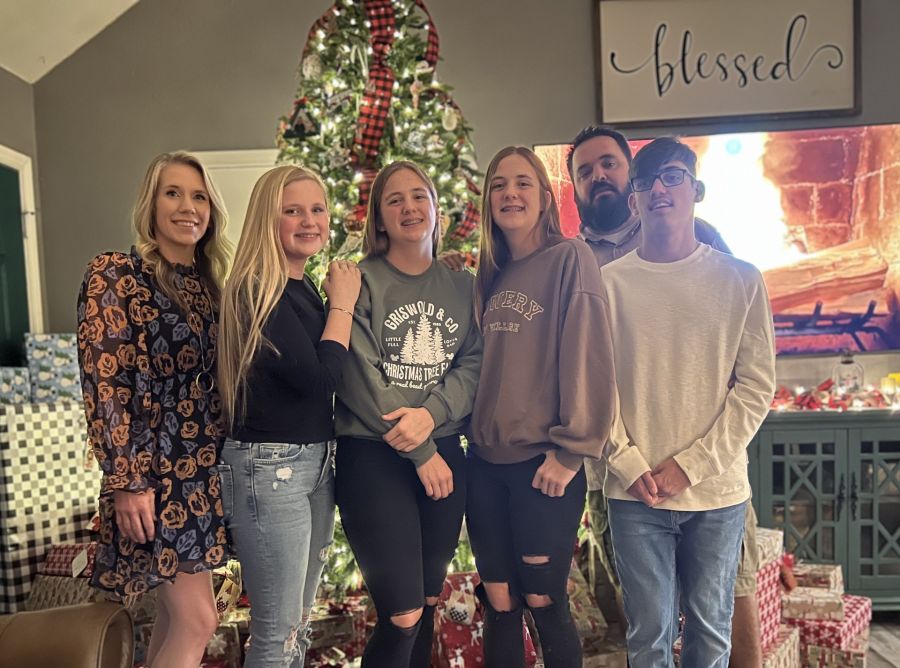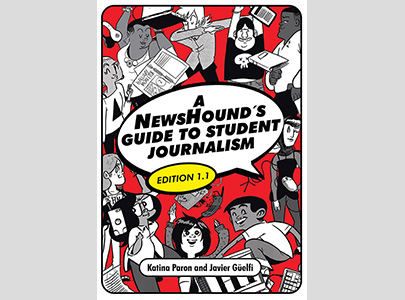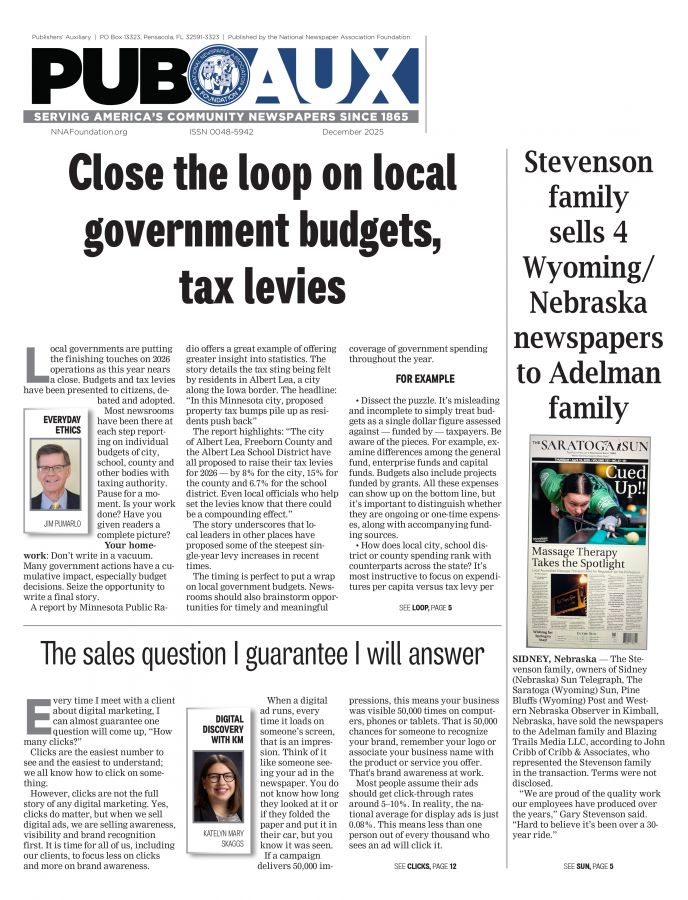Journalism education is essential: Intern rises to prize-earning editor
Jul 1, 2021
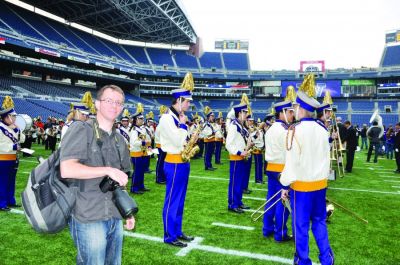
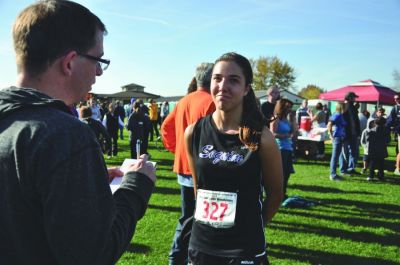
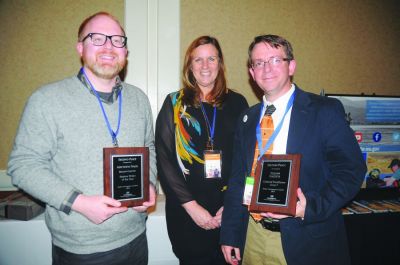
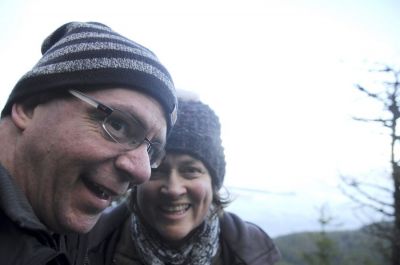
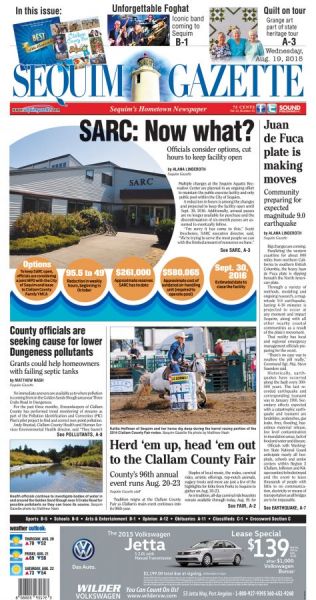
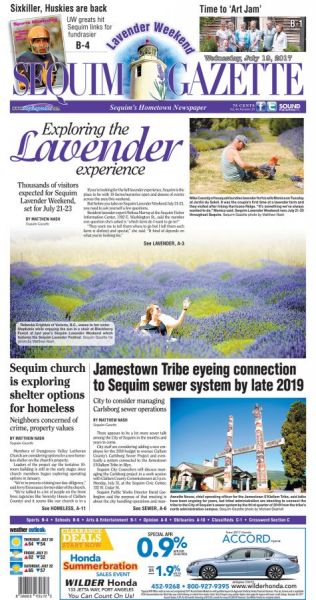
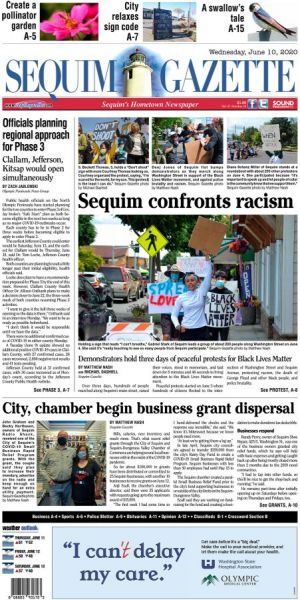
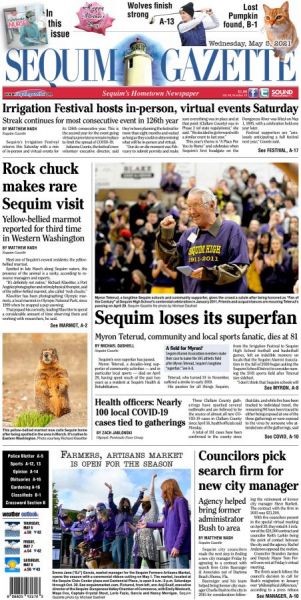
FRANK GARRED
NNA Past President
Michael Dashiell describes himself as a Navy brat, having lived here and there where his dad’s military duty took him. Finally settling in Bremerton, Washington, he finished high school and attended Olympic College, a two-year program preparing him for a journey to and journalism degree from Western Washington University (WWU) in Bellingham, Washington.
Today, students majoring in college journalism programs tend to face daunting debt challenges upon graduation and generally an absence of degree-related jobs with traditional media. Here’s how Dashiell met such challenges and what his views are related to both his education and experience.
Dashiell’s professional journey began in 2001 when he came to the Sequim (Washington) Gazette as an intern finishing his J-degree requirements. WWU requires its J-students to have a paid internship as part of its degree program.
The Gazette editor interviewing Dashiell for its internship position explained that he would be considered an employee and paid a regular salary, referred to as an “intern” to meet the WWU requirement.
Dashiell joined the reporting staff of four, found an apartment he shared with a co-worker and began to discover the community he would serve. He became so engrossed with the Gazette’s Journalism mission that his intern tenure evaporated in a few months and his performance inspired the editor to offer him a permanent reporting post.
He accepted with no interruption.
And his devotion to the new position “forced” him to miss his WWU graduation exercise.
He soon discovered that journalism practiced in a small northwest Washington town was not isolated from national events. Sept. 11, 2001 — a Tuesday and deadline day for the Gazette — was as dramatic for the staff as it might have been for the New York Times or Washington Post reporters. His community was not geographically close to the New York Trade Center trauma, but his constituents were equally affected, watching the tragedy evolve on live television.
Dashiell joined the staff in localizing and dramatizing that event through the eyes and words of local residents, stunned by the unfurling event. The community had a scheduled blood donation program the day after, Sept. 12. The Gazette tracked that event after its coverage reached readers that morning. Response was overwhelming. And that is understating the community’s response.
So much for launching his journalism career with a 6,000-plus paid-subscriber community weekly newspaper.
Dashiell still works at the Gazette — 20 years now as of this past April. He has earned many professional honors: Washington Newspaper Publishers Association Sportswriter of the Year (three times) along with many photography awards. Five times his newspaper has earned the state’s General Excellence award. There are many other certificates recognizing his accomplishments in his personal archive.
Yet the real story might be this: from intern to full-time reporter to sports editor to the newspaper’s top position, editor, he has worked and earned every step in a small community that eagerly still awaits the weekly Gazette to make their day.
Was Journalism education and a degree necessary to achieve such goals as yours, we asked. Dashiell’s response: “It’s essential.”
But his response was tempered by the reality of today’s journalism marketplace. “We’ve had to cut staff and retreat some from enterprise coverage,” he said. “It’s not as if we’re abandoning such coverage; we just don’t have the economic resources today to meet our professional goals.”
In recent years Dashiell has noticed a decline in readers’ response to Gazette stories. “We don’t get many letters to the editor, for example. People just don’t write letters; they deliver comments, criticism and observations via social media,” he notes.
That led to further reflection on his journalism education then and its outcomes and graduates now. “In recent years, we found a weakness among reporter-applicants on the values of journalism standards, ethics,” he offered. Not that these are absent, in his view; they’re just not dramatically apparent. Some of this might come with the growth of social media. Journalists tweet between published and broadcast reports, and these aren’t the most objective accounts.
Objectivity and balance are often tough to achieve in every story you do, but reporters certainly should know when they ignore these all together, he maintains.
Responding to our question about the state of journalism education programs today, Dashiell, who visits and talks journalism with students at area colleges, especially notes:
“A focus on media law needs to be in place (added or maintained); journalism students need to be ready for attacks on their profession. With declining newsroom numbers, I see journalists needing to have a bit of everything in their bag — design, photography, social media savviness along with writing and reporting chops — to make it.”
From intern to editor, Dashiell has remained staunchly embedded in “his” community. Besides the professional achievements, his personal life has evolved. He met his wife, Patsene, in Sequim; she’s part of the marketing team at city hall. He enjoys hiking in the Olympic Mountains, the San Juan Islands and on the nearby Strait of Juan de Fuca beaches. Playing volleyball and other sporting pursuits are shared with family.
And The Gazette is “his” newspaper to share with subscribers, even though an international corporation — Black Press of Canada — owns it.
Frank Garred, formerly of the Port Townsend (Washington) Leader, was NNA president in 1992. fpg@olympus.net
Expanded Q&A with Dashiell is below.
Pub Aux: Did your education prepare you for professional performance — what was your education; what elements especially worked to prepare you for the job; was the WWU intern program worth the effort; did your internship at the Gazette prepare you for the career you followed?
Dashiell: I attended Olympic College (Bremerton, Washington) for my associate’s degree and Western Washington University for my bachelor of arts degree in journalism-editorial track (English focus). I took journalism classes at Olympic College and worked on the student newspapers at both schools, both as a staff writer and as part of the production staff.
For someone who did not participate in a lot of team sports, one of the key elements of working on the newspaper — both as a writer and staffer — was learning to work creatively with other journalists. Deadlines were obviously key as well; knowing someone else needed my work to be on time (as compared to a writing assignment for a class) made a big difference.
In college, we had a practice of marking up the paper the day after it went to print — what worked well, what didn’t, what we’d do different if we had more time/space/motivation, etc. — that helped, particularly with getting young writers like myself break from being too proud about my own words and care more about the product.
My “internship” was really just the first three months of the regular job, so it’s hard to say whether it was worth the effort. I do think it’s a good idea for writers to do (paid!) internships, as in theory it give both writer and company a tryout time to see if both like the situation.
What were your internship salary, living arrangements in the community, reporting assignments; mentoring support?
Dashiell: My internship salary simply was starting level salary; I can’t recall exactly what it was but probably worked out to about $24K per year. I spent the first six months living rent-free at an aunt and uncles place in Port Angeles, but then moved back into Sequim in a two-bedroom apartment. I eventually got a roommate to share expenses and by 18 months rented a house near Sequim, same roommate.
Mentoring support came from the coworkers at the Gazette. The editor and publisher were very experienced and helpful, cross when they needed to be, encouraging at all times. Fellow staff writers also were very helpful; one called me before my first day to give me an idea of what the job would be like.
Were later fulltime working conditions (physical, professional) in line with your career development?
Dashiell: I essentially was working fulltime at the outset, and working as a journalist was what I was aiming for as a career from the start.
Upon hiring as fulltime reporter, were assignments challenging; was staff support professional? What was missing?
Dashiell: All assignments were challenging at the outset. In college, story ideas were handed out and most of the time subjects were anticipating a story. I was generally writing soft features and sports, so getting a wide variety of stories, from news to features to even simply covering a beat was new and somewhat challenging. In addition, I was brand new to the community, so the learning curve was steep in terms of who to know. Fortunately, my fellow coworkers were extremely helpful in finding me sources and go-to people at the outset, until I could get my “sea legs.” I wouldn’t say anything was missing per se.
One of my earliest stories as a staff reporter was when the editor sent me to cover the Clallam County Fair. So I took one slice of it — the demolition derby — and zeroed in on that. I followed a Sequim family through it all, sat back in the "pits" while they tinkered with their busted up cars and interviewed them before, during and after. Made a neat piece that earned my first award, a first place at SPJ's (Society of Professional Journalists) regional competition. Here’s the first graph from that piece:
"A quick look at the pit at a demolition derby and one might mistake it for an auto wrecking joint. Sure, the vehicles are all in one piece, but there's more twisted metal back here than an orthodontist would see in three lifetimes. Back ends, folded bumpers, wheels that seem bound to lie flat than to help a car roll anywhere, broken glass ... and that's before the derby."
As your career evolved, were economic and professional goals achieved? What were any limits?
Dashiell: To be honest, I’m not sure what my economic goals were other than to be able to pay rent and groceries. Because I don’t have a lot of costs and got used to living in a relatively Spartan lifestyle, I was able to get by on the starting reporter salary. I was fortunate to have family members close by to live with to start off, and then having a roommate was significantly helpful to pay rent in the early years. I was also fortunate to work for a company that had 401K plans and invested in those early.
Professionally, I moved up in positions when I had the chance as people left the company. My first editor also covered sports and a year later during an editor change, they needed someone to write sports, so I volunteered and it later became a “sports editor” position. I think much of my advancement was simply me taking initiative to be as useful and skilled at different assignments (design/layout, copy editing, etc.) as possible.
Up to this point, can you advise/mentor j-students to develop and achieve career goals as professional Journalists?
Dashiell: Yes, I think having career goals is good, but it’s advisable to be as flexible and industrious as possible. When I started, we weren’t quite still on paste-up but we were still using film cameras, the internet was barely out of infancy and social media wasn’t on the radar. Plus, one never knows how an ownership change will alter a workplace. People who love storytelling — and are good at it — will succeed if they stick with it and roll with the changes.
Do you now offer internship opportunities at the Gazette? If yes, do you guide interns with your professional experience? If no, explain (cost, limited time, no interest)?
Dashiell: We haven’t had interns in several years, but most of our new hires are very young and it’s almost like working with interns. Yes, I work a lot with young writers when I can, both here and when I get a chance if someone contacts me on their own or when I speak with students at Peninsula College (Port Angeles, Washington). I’d love to do it more; time is primarily the factor, not cost.
Does the community accept and recognize you as a professional Journalist?
Dashiell: Yes. There are some who tend to think of the weekly newspaper as a kind of junior varsity version of a newspaper, with a daily paper at Port Angeles circulating here in town, but those who subscribe and have read the paper over the years know different (and say so). Interestingly, I wind up having more credibility now that my work appears in both weekly and daily papers (we are now owned by the same company and share content). Some people assume I work for the daily paper because they see my byline there and don’t get the weekly.
What are the challenges in maintaining community engagement?
Dashiell: Having to connect with people on multiple platforms is difficult. Some people like their news in print, some on the website, some on Facebook, some on Instagram, some from the coffee shop, etc. We spend almost as much time simply reformatting information to get to people the way they like it as on the writing itself.
Has digital technology (DT) affected Journalism standards, ethics?
Dashiell:
As mentioned above, DT is a massive time constraint to the process and at the same time there’s a real interest in getting news out quickly, and that always leans on the staff to cut corners on the process. But I feel those processes are still in place: gather the news, write, verify, copy edit, copy edit again, publish, and if needed make corrections. It simply has to happen faster — and with less people — at this point.
Has DT affected how you report: sourcing, fact checking, more or less personal engagement?
Dashiell: Certainly less personal engagement, particularly during COVID-19. Much sourcing is done through social media and the like, now that phone books are basically useless. If everyone is using a cell phone and you don’t have it, how do you contact someone? Plus, tons of story ideas come through people’s own posts. Fact-checking still goes through traditional routes — can a government source confirm? Can one trust anything one sees on social media? — but DT does often give a second, third or fourth side/perspective to an issue one might not even consider sitting at a desk and covering a government meeting via Zoom. DT offers more engagement opportunities for personal engagement, but who has the time to engage with everyone, all the time?
Should/do Journalism graduates apply professional standards and ethics in the use of social media? Are you finding the standards and ethics embedded in job applicants, interns?
Dashiell: To the first question, always. To the second question, I feel like most of my newer hires know some standards and ethics, but those who took media law in school are much, much better prepared for the kind of things we wring our hands over and debate, such as use of photos or how to cover types of death, etc. I find newer reporters more willing to post first and ask why later, so I generally try to slow them down and ask them to think a bit more and see if it’s better to get more information before posting something.
Is Journalism education providing qualified applicants to community news employment?
Dashiell: I think college Journalism programs are doing a good job of teaching how to tell stories via various modes and methods; my newer hires weren’t great storytellers/writers right away, but that’s a skill that needs to be developed on the job and over a lifetime.
What needs to change; what should remain in place for the j-education programs? What needs to be added?
Dashiell: A focus on media law needs to be in place (added or maintained) as journalism students need to be ready for attacks on their profession. With declining newsroom numbers I see Journalists needing to have a bit of everything in their bag — design, photography, social media savviness along with writing chops — to make it.
I’d like to see more four-year journalism programs help out junior college programs, make the transition smoother and maybe boost their numbers at the small college level.
Finally, here’s my suggestion that I’m sure not a lot of newsroom folk are going to like: I think both to sharpen our overall focus for the industry and to instill more trust with the community, I’d like to see Journalists have to pass a kind of bar exam — one that would address ethics issues, maybe based on SPJ’s code of ethics. I posed this question to some friends of mine the other day. I asked, “What do you think it takes to be a journalist, to work for a newspaper?” They had no clue. And it really doesn’t require a thing, right? We prefer people with Journalism degrees and experience, but in my last hire I took someone who didn’t finish his degree and wrote for online blogs for a couple of years. Half of our past six hires came with either no degree or English degrees … which means they had the writing skills, but we had to teach them journalism ethics and “how not to get sued with your next article” on the fly. With all of the conversation about who is a journalist and who is not, let’s clean it up. There isn’t a debate about who’s a doctor or lawyer and who isn’t, right?
Contact Michael Dashiell, editor of The Gazette in Sequim, Washington, on direct line, (360) 499-6574.


